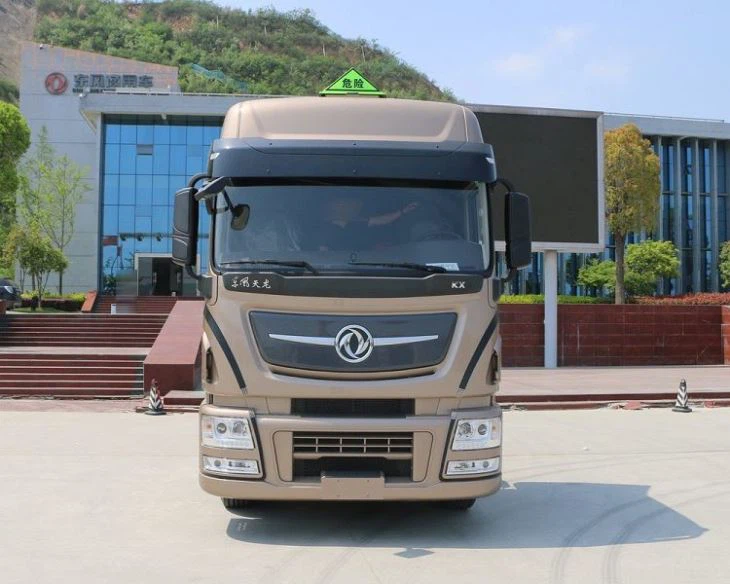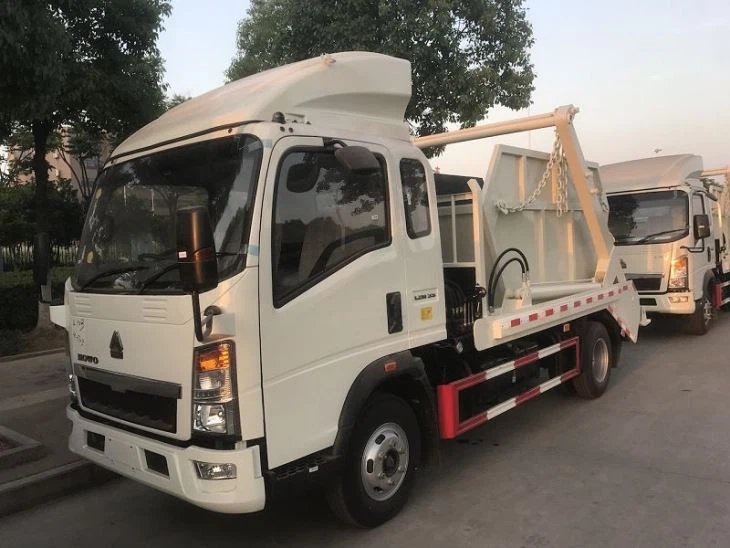Ultimate Guide to Mini Dump Trucks: Everything You Need to Know

Mini dump trucks are versatile vehicles that are rapidly becoming popular in construction, landscaping, and various other industries. They offer the utility of larger dump trucks but come in a smaller, more maneuverable package, making them ideal for both indoor and outdoor jobs. In this article, we’ll explore everything there is to know about mini dump trucks, covering their benefits, features, types, maintenance tips, and much more.
What Are Mini Dump Trucks?
Mini dump trucks are small to mid-sized trucks designed for transporting loose material such as dirt, gravel, sand, and debris. Unlike standard dump trucks, mini dump trucks are more compact and can navigate tighter spaces, making them ideal for projects where space is limited. These trucks often feature a tilting mechanism for easy unloading, ensuring that materials can be discharged quickly and efficiently.
Key Features of Mini Dump Trucks
- Compact Size: Ideal for small jobs and tight spaces.
- Versatility: Capable of handling various types of material.
- Easy Maneuverability: Simple to drive, even in challenging environments.
- Hydraulic Dumping: Efficient unloading capabilities.
- Durability: Built to withstand tough environments.
Benefits of Using Mini Dump Trucks
The advantages of using mini dump trucks can significantly impact efficiency and productivity. Here are some key benefits:
1. Space Efficiency
Due to their smaller size, mini dump trucks can operate in areas where full-sized trucks cannot fit, allowing for load transport in more confined locations.
2. Cost-Effectiveness
Mini dump trucks generally cost less to purchase, maintain, and fuel compared to their larger counterparts, making them an economical choice for many businesses.
3. Increased Productivity
With quicker unloading times and easier maneuvering, these trucks can help complete jobs faster, benefiting overall project timelines.
4. Environmentally Friendly
Many mini dump trucks are designed with better fuel efficiency, as well as emissions standards, making them greener alternatives for small-scale jobs.
Examples of Mini Dump Truck Uses
| Industry | Use Case |
|---|---|
| Construction | Transporting building materials to and from the site |
| Landscaping | Moving soil, mulch, and stone for gardens and yards |
| Waste Management | Collecting debris from construction or renovation sites |
| Infrastructure | Soil and aggregate hauling for road and bridge projects |
Types of Mini Dump Trucks
Mini dump trucks come in various types, each suited for different applications. Understanding these types can help you decide which one is right for your needs:
1. Light-Duty Mini Dump Trucks
These trucks have a lower payload capacity, making them ideal for residential jobs, small landscaping projects, and light material transport.

2. Medium-Duty Mini Dump Trucks
With a higher payload and more powerful engine, medium-duty trucks can handle heavier loads, suited for small construction jobs and significant landscaping tasks.
3. Heavy-Duty Mini Dump Trucks
These models come with robust engines and larger dumping capacities, perfect for more demanding industrial jobs and extensive construction projects.
Popular Mini Dump Truck Brands
- Honda: Known for reliability and fuel efficiency.
- Yanmar: Offers compact models with powerful performance.
- Kubota: Combines versatility with strong build quality.
- Bobcat: Famous for its range of attachments and versatile design.
How to Choose the Right Mini Dump Truck
Selecting the correct mini dump truck entails considering various factors. Here’s how to approach your decision:
1. Assess Your Needs
Determine what you will primarily use the mini dump truck for – residential work, landscaping, construction, etc. This assessment helps narrow down the options.
2. Check Payload Capacity
Payload capacity is crucial based on the materials you plan to transport. Ensure the chosen truck can handle the weight needed.
3. Look at Size and Dimensions
Ensure that the mini dump truck can navigate the spaces in which you intend to operate it. Check turning radius and overall dimensions.
4. Fuel Efficiency
Consider a model with better fuel efficiency to manage operating costs over time, especially for frequently used trucks.
5. Review Maintenance Needs
An easy-to-maintain model can save you time and money on repairs. Check reviews and manufacturer guidelines.
Checklist for Purchasing a Mini Dump Truck
- Define usage and materials to transport
- Calculate required payload capacity
- Measure site dimensions for fit
- Investigate fuel efficiency ratings
- Review warranty and service agreements
Maintenance Tips for Mini Dump Trucks
1. Regular Oil Changes
Change the engine oil and oil filter as per manufacturer guidelines. This helps ensure optimal engine performance and longevity.

2. Tire Maintenance
Inspect tires regularly for wear and proper inflation. Adhering to the correct tire pressure is essential for safe operation and fuel efficiency.
3. Brake System Checks
Regularly check the brake fluid level and inspect brake pads and rotors. Safe braking is crucial due to the weight often transported.
4. Battery Care
Keep the truck’s battery connections clean and ensure the battery is charged. Replace it when performance starts to diminish.
5. Clean the Truck

Regular washing helps prevent rust and corrosion. Ensure that the dump bed is cleaned from any residual materials after use.
Maintenance Schedule Example
| Maintenance Task | Frequency |
|---|---|
| Engine Oil Change | Every 3,000 miles or as recommended |
| Tire Inspection | Monthly |
| Brake System Check | Every 6 months |
| Battery Maintenance | Every 3 months |
| General Cleaning | Bi-weekly |
Practical Tips for Operating Mini Dump Trucks
Driving a mini dump truck comes with its own set of skills. Here are some practical tips for operating one safely and efficiently:
1. Pre-Trip Inspection
Always conduct a thorough inspection of the truck before starting your project. Check for any visible leaks, tire conditions, and overall vehicle readiness.
2. Load Distribution
Ensure loads are evenly distributed in the dump bed. This improves handling and reduces the risk of tipping over or swaying while in motion.
3. Be Mindful of Terrain
When operating on uneven terrain, proceed cautiously. Engage the vehicle’s four-wheel drive if equipped to improve traction and control.
4. Use Proper Signaling
When turning or reversing, always signal your intentions. This ensures safety for both the operator and those working nearby.
Best Practices for Safe Operation
- Wear safety gear including helmets and gloves.
- Keep the truck clean and organized.
- Follow load capacity limits to prevent accidents.
- Stay updated on local driving regulations for construction vehicles.
Frequently Asked Questions (FAQ)
1. What is the average cost of a mini dump truck?
The price of mini dump trucks typically ranges from $15,000 to $50,000, depending on various factors such as brand, features, and condition (new or used).
2. How much weight can a mini dump truck carry?
Payload capacities can range from 1,500 to 6,000 pounds, depending on the model and design. Always check the specific truck’s rating before use.
3. Do mini dump trucks require a special driving license?
In most cases, a standard driver’s license is sufficient to operate mini dump trucks. However, it’s best to check local regulations as requirements may vary.
4. Can I use a mini dump truck for snow removal?
Yes, with appropriate attachments such as snow plows, mini dump trucks can be effectively utilized for snow removal tasks.
5. Where can I find parts and accessories for mini dump trucks?
Parts and accessories are typically available from authorized dealerships, specialist automotive stores, and online marketplaces.
6. Are mini dump trucks fuel-efficient?
Many modern mini dump trucks are designed with fuel efficiency in mind, often providing better mileage than larger trucks due to their size and engine type.
